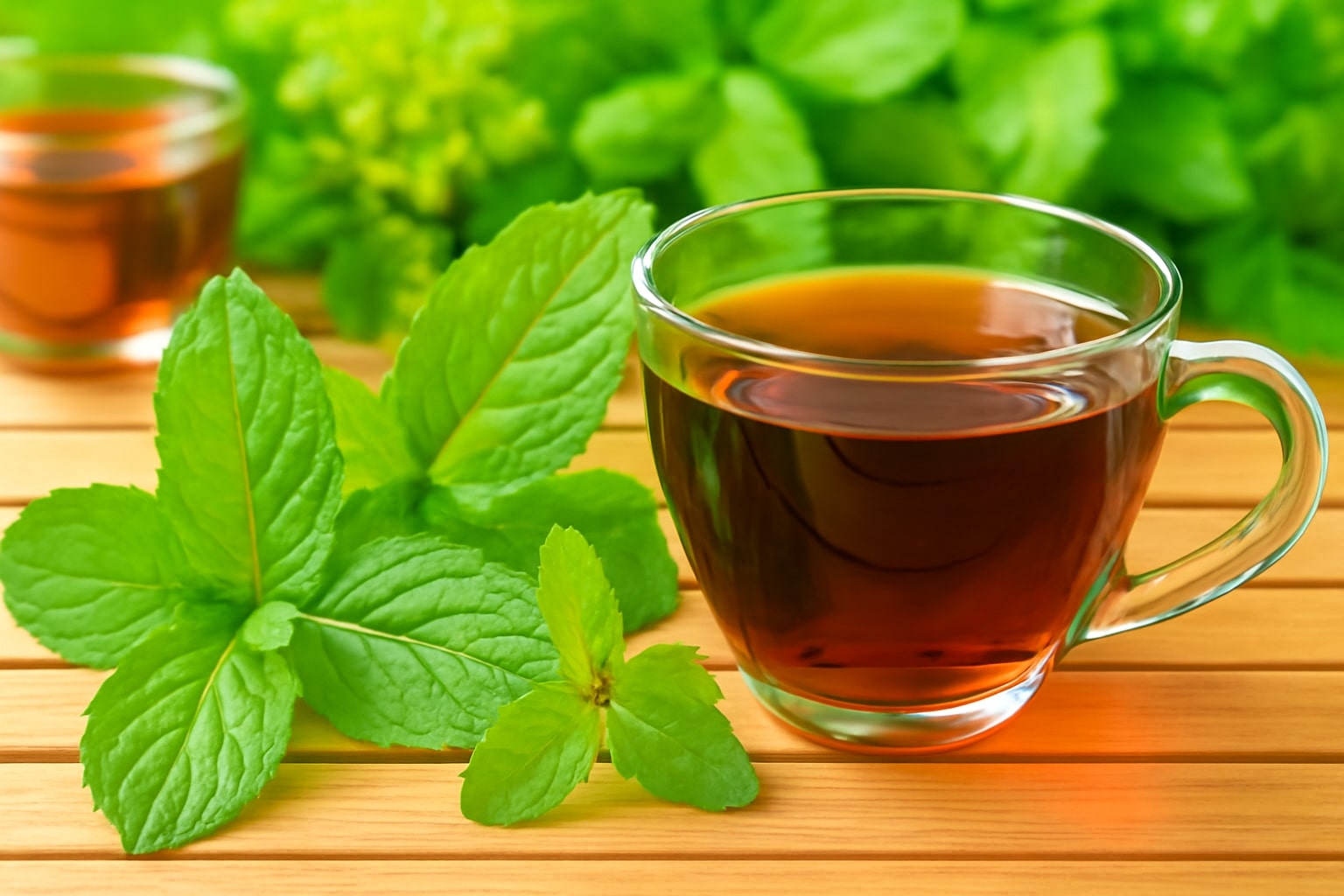Melissa tea or lemon balm tea is now widely used because of its soothing qualities and many health advantages. You can use Melissa tea to deal with stress, sleep better or simply drink for its refreshing taste. Making your own tea is a wonderful way to take advantage of its benefits.
In this article, you will find out how Melissa tea helps with stress and anxiety, step-by-step instructions on how to prepare it and some ideas to enjoy it the best way. Keep reading to find how quickly you can make this relaxant a regular part of your routine.
What Is Melissa Tea?
Understanding Melissa Tea and Its Origins
The leaves of the lemon balm plant (Melissa officinalis from the mint family) are used to make Melissa tea. Many people refer to lemon balm tea because of the tangy lemon scent it brings.
Why Is Melissa Tea So Popular?
For years, individuals have taken Melissa tea to relax the body and help with digestive issues. Now, it is commonly recognized for helping ease anxiety, control stress and support better sleep.
Melissa Tea Benefits You Should Know
Melissa Tea for Stress Relief
One of the main reasons people drink Melissa tea is that it calms the nervous system. Scientists have found that lemon balm contains chemicals that interact with GABA in the brain to lower stress and make people feel calm.
How Melissa Tea Helps Anxiety and Sleep
Drinking Melissa tea can relax you slightly and help you sleep better. Some individuals choose this tea as an alternative to prescription sleep medications.
Here Are Some Extra Good Things About Melissa Tea
- Aids in digestion: Keeps swelling and indigestion under control.
- It may help the brain remain sharp by boosting focus and memory.
- May help to ease the pain of cold sores and other viral problems.
How to Make Melissa at Home: Step-by-Step Guide
Ingredients and Tools You will Need.
- A tablespoon of either fresh or dried Melissa (lemon balm) leaves
- You should add one cup (240 ml) of boiling water.
- A teapot or cup that is safe for hot drinks
- Using a strainer or tea infuser will make the process easier.
- For some extra taste, consider using honey or slices of lemon.
Step 1: Prepare Your Melissa Leaves
If your Melissa leaves are fresh, wash them by placing them in cool water and gently mixing them. Take about one tablespoon of dried leaves for your tea.
Step 2: Boil Water
Get your water as hot as you can, so it begins to boil. Not to destroy its delicate flavor and oil, avoid boiled water that has been used for a long time.
Step 3: Steep the Leaves
Put some Melissa leaves into your teapot or cup and pour hot water onto them. Make sure the cup or teapot is covered so the essential oils do not escape.
Step 4: Let the Tea Brew
Place a lid on your pot and let the tea steep between 5 and 10 minutes. Leaving your tea in the water for a longer time makes it stronger and improves its benefits.
Step 5: Strain and Serve
Put a strainer in your cup and tip the tea pot to remove the leaves. You can make your tea taste sweeter by adding honey or more tangy by slicing some lemons.
Tips for Enjoying Melissa Tea for Stress Relief and Relaxation
Best Times to Drink Melissa Tea
Drink a cup of Melissa at night to ease any stress you may feel and to support a good night’s rest. You can have breaks and smoke weed as a way to calm your nerves.
How Much Melissa Tea Should You Drink?
The majority of people can drink between one and three cups each day safely and effectively. Have only a single piece at a time to see how it affects you.
Combining Melissa Tea with Other Herbs
Mixing Melissa with calmative herbs for heart health such as chamomile or valerian root will give you an even better chance to relax.
Conclusion: Start Brewing Your Own Tea Today!
You can use Melissa to calm down and improve your sleep by making tea from it at home. A few simple moves are all you need to prepare a delicious cup that aids relaxation and your mind. In case you feel stressed or anxious or if you have trouble getting sleep, drinking Melissa tea regularly may ease your symptoms and return balance. Regularly drinking this herbal remedy is tasty and helps care for you both inside and out, so adding it to your routine is an excellent choice.
CTA (Call to Action) – Ready to Experience the Calming Benefits ?
Enjoy inner peace and calm today by brewing Melissa tea on your own. Making an herbal infusion only requires a few simple steps to support stress relief, help you sleep well and improve your general health. Why wait? Make a cup of tea now to feel the benefits directly.
FAQs about Melissa Tea
1. What do we mean by Melissa tea?
Melissa tea comes from the leaves of the lemon balm plant and is celebrated for relieving stress.
2. What can Melissa tea do for you?
It lowers stress levels, promotes better sleep, aids digestion, and supports how our brain works.
3. How can I brew Melissa by myself?
Pop 1 tablespoon of Melissa fresh or dried leaves into boiling water and leave it for 5-10 minutes.
4. Could Melissa be helpful for anxiety symptoms?
Melissa tea contains substances that may calm you and ease feelings of anxiety.
5. Is it okay to have Melissa tea every day?
Yes. Still, talk to a healthcare provider if you are pregnant, breastfeeding or taking any medicine.
6. Does drinking Melissa tea help people sleep?
Yes, it truly helps people unwind and get a better night’s rest.
7. Could I add honey or lemon to Melissa tea?
If you enjoy the taste, honey or lemon makes this drink better but be sure to avoid adding lots to keep it healthy.
8. What side effects can Melissa tea cause?
Many individuals do not have any side effects, though nausea or dizziness is rare in sensitive people.











